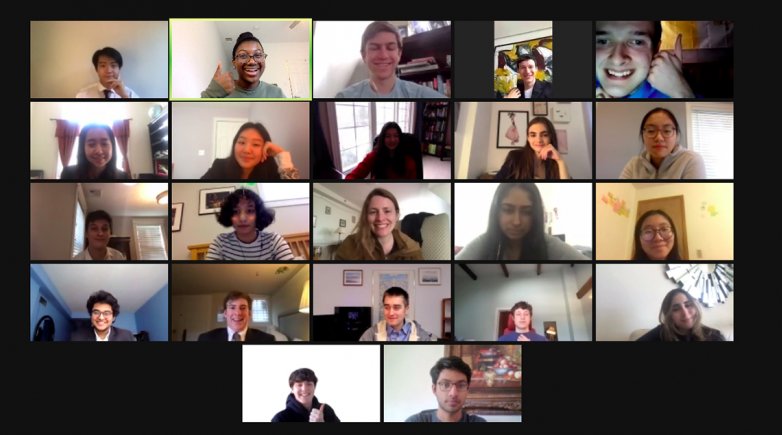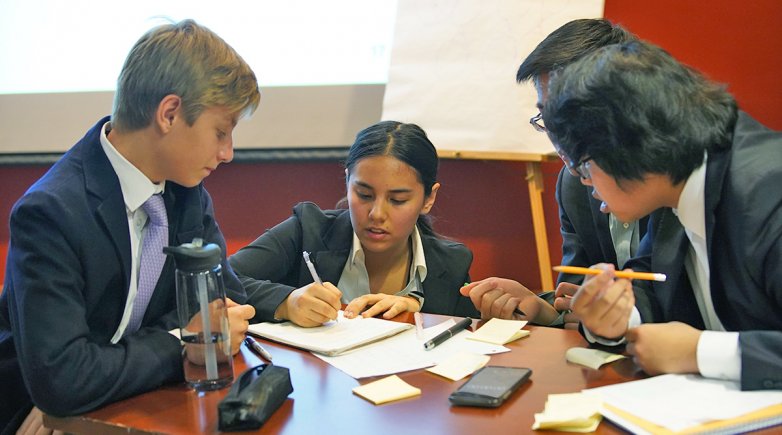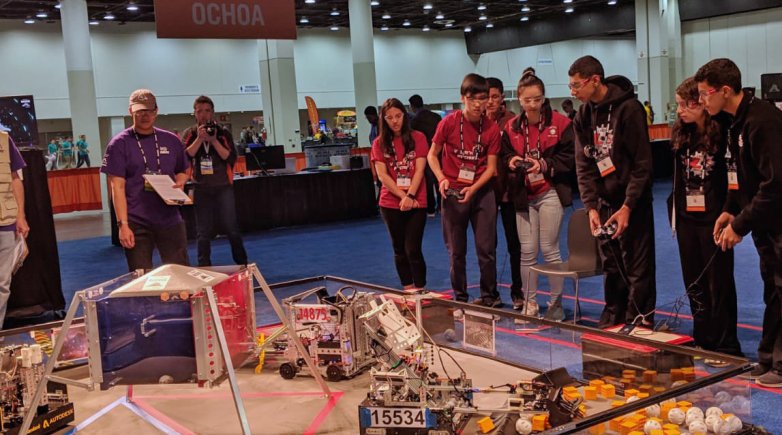Mock trial team makes case for national championship
Eight Exonians to present arguments after winning state title.
PEA's Mock Trial Club has earned a spot in the national tournament. Representing Exeter in the event will be (from left to right): Bea Burack '21, Bona Yoo '22, Alicia Gopal '21, Anderson Lynch '23, Sav Bartkovich '23, John Lee '22, Osiris Russell-Delano '21 and Maggie Wainwright '21 (not pictured).
Smith Dawson is a towboat captain who committed reckless homicide when his shipping barge struck and killed a fisherman on the Ohio River. Or, Dawson is not responsible for what was a tragic accident on the river that night two years ago and should be cleared of all charges.
Eight Exeter students will argue both sides of the fictitious court case this month in the National High School Mock Trial Championship, a spot they earned in February by winning the New Hampshire title.
Whether or not the boat captain is guilty is irrelevant to our competitors (though things don’t look good for Captain Dawson). They must be able to present a winning case for the prosecution and for the defense. That’s why Bea Burack ’21, Osiris Russell-Delano '21, Alicia Gopal '21, Maggie Wainwright '21, John Lee '22, Bona Yoo '22, Anderson Lynch '23 and Sav Bartkovich '23 have been studying case materials for the past month ahead of the three-day virtual event. The finals begin May 13.
Exeter’s Mock Trial Club boasts about 30 members. Burack, Gopal, Russell-Delano, Wainwright, May Chen '21 and Hojun Choi '21 share co-head duties. PEA swept the top three spots in the state competition; Team A outpointed Team C in the final to earn a place in the national field.
In mock trial competitions, teams are given access to case materials such as charging documents, witness statements and applicable case law. Each team must fill three attorney roles for the prosecution and for the defense — depending on which side it is tasked to represent in head-to-head competition — as well as all the witness roles for each side. That means Exeter’s competitors must be prepared to play multiple parts.
“We assign roles based on which characters and parts of the case are most interesting to us or fit best with our personalities and presentation styles,” explains Burack. “Sav, for instance, can cry on command, so any witness role that involves acting sad automatically goes to him, while I always take on our ‘expert’ witness roles (coroners, police officers, etc.).”
Trials last multiple hours and consist of timed segments called statements (when lawyers speak for five minutes to present their side's version of the story to the jury), direct examinations (when witnesses explain their version of the event that transpired), and cross-examinations (when a lawyer from the opposing side questions a witness about their interpretation of the events). Each segment is scored on a 10-point scale (based on presentation and effectiveness). The team with the most points wins the round.
Russell-Delano and Wainwright helped Exeter to a 13th-place finish at nationals in 2018. Last spring, Exeter again qualified for the national event, only for it to be canceled because of COVID-19.


